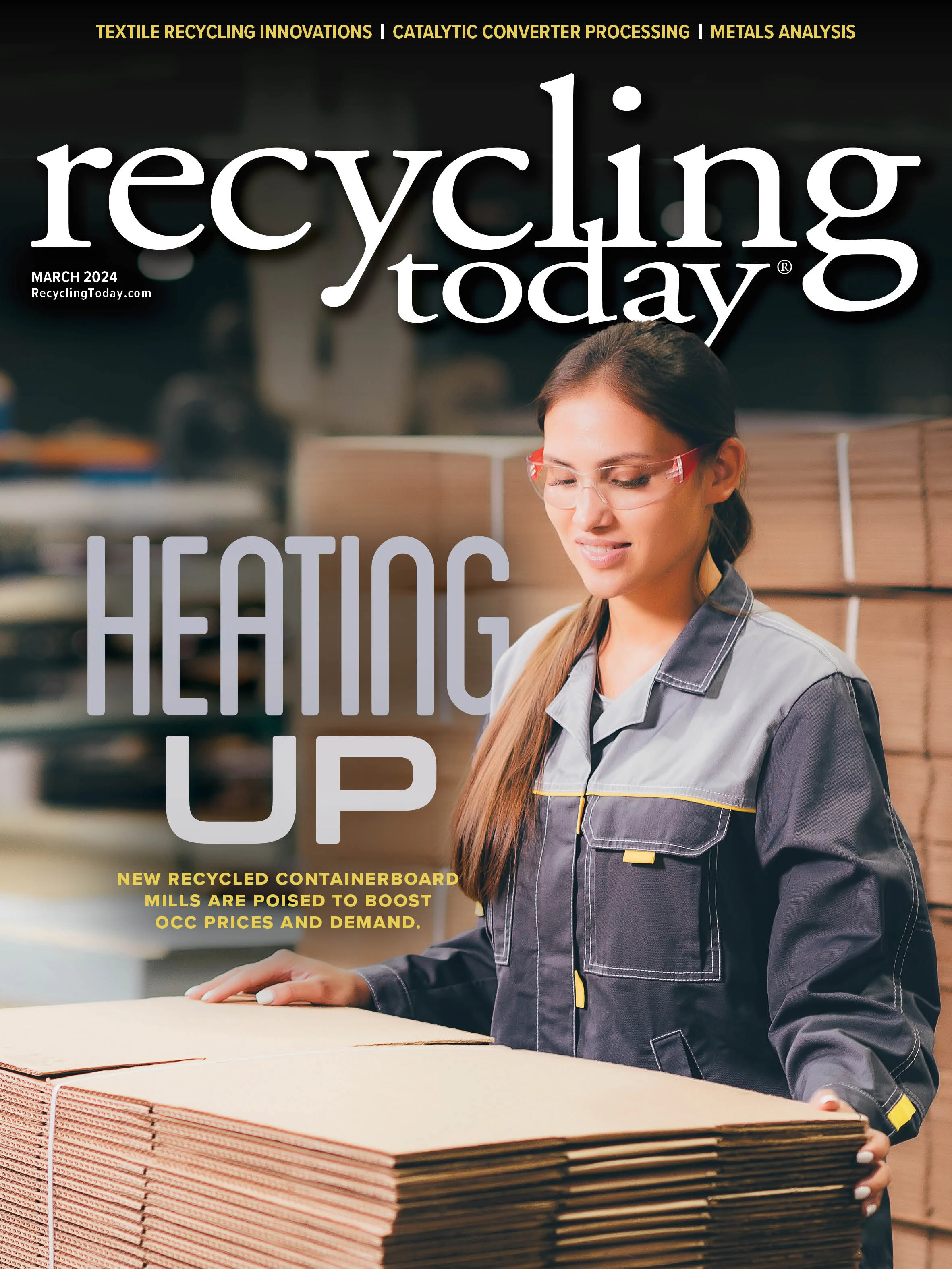Caleb Ralphs
Co-founder and chief technology officer at Valis Insights Inc.

Caleb Ralphs entered the recycling industry as an undergraduate student studying computer science at Worcester Polytechnic Institute (WPI) in Worcester, Massachusetts.
There, he says he “stumbled” into the industry when a friend told him of an opportunity to work with a doctoral student researching automotive aluminum recycling. Ralphs assisted in programming, modeling and data visualization, which turned it into an internship with Worcester-based Solvus Global.
Ralphs always had been interested in sustainability and climate policy but had no prior exposure to the industry and initially didn’t consider a career in recycling.
“When I was just pursuing a software degree, I didn’t have any exposure to the recycling space,” he says. “It was a pleasant surprise to see there [are] so many technological advancements and utilizations of cutting-edge technology.”
Ralphs is the co-founder and chief technology officer (CTO) at Valis Insights Inc., a Worcester-based offshoot of Solvus Global. Valis provides AI-powered process optimization software that integrates with sensor-based recycling technology to capture material data. The company was incorporated in 2022 and has forced Ralphs to shift his mindset away from perfectionism.
“[I] had gotten connected with some former CTOs of startups who gave me advice on not trying to build something that’s perfect but … being comfortable with making mistakes as long as you’re progressing as fast as you can.”
Ralphs and Valis co-founder and CEO Emily Molstad recently were named to the 2024 Forbes 30 Under 30 for Manufacturing and Industry list, an accolade Ralphs does not take lightly.
“I was definitely surprised and super honored,” he says. “It was a moment of picking my head up and realizing the progress we’ve made with our company and how far we’ve come in such a short amount of time.”
In the following interview, Ralphs discusses burgeoning technologies, industry challenges and the role science, technology, engineering and mathematics (STEM) students can play in the recycling industry.
"There’s so many technological advancements and utilizations of cutting-edge technology in the [recycling industry].”
Recycling Today (RT): Are there any new technologies you hope to see the industry embrace?
Caleb Ralphs (CR): We’ve seen applications of computer vision in a lot of areas in the recycling domain, like with MRFs [material recovery facilities] and other municipal recycling applications using robotics and computer vision classification to figure out a plastic bottle from an aluminum can.
There’s a lot of opportunity for improvements in adopting computer vision for analyzing materials and making decisions on quality or integrating it with existing sorting technologies to improve … recovery rates.
RT: What are some of the biggest issues impacting the industry today?
CR: The biggest problems facing the industry, at least in the parts that we’ve been working in recently, have been handling all the different sources of variants that are introduced into the material recovery process.
Most prominent is market volatility, variants in market prices and figuring out ways to [address] changes in what scrap consumers are wanting to buy and changes in the material coming into scrap processing facilities.
RT: How can the recycling industry recruit more young professionals?
CR: There [are] a ton of young people very interested in sustainability and recycling but [who] don’t know this industry exists and don’t know their interests ... can apply there.
That was one of the big things I presented on [at WPI]. Pretty much every major that was in the room at the university had a place in providing value [to] the recycling industry.

Explore the March 2024 Issue
Check out more from this issue and find your next story to read.
Latest from Recycling Today
- Phoenix Technologies closes Ohio rPET facility
- EPA selects 2 governments in Pennsylvania to receive recycling, waste grants
- NWRA Florida Chapter announces 2025 Legislative Champion Awards
- Goldman Sachs Research: Copper prices to decline in 2026
- Tomra opens London RVM showroom
- Ball Corp. makes European investment
- Harbor Logistics adds business development executive
- Emerald Packaging replaces more than 1M pounds of virgin plastic





